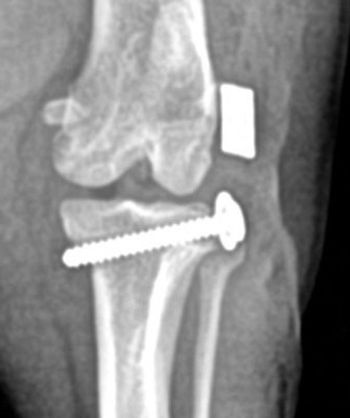
|Articles|September 10, 2009
Daily Dose
Your daily dose of clinical tips and quips: Housetraining.
Advertisement
Untitled Document
“Dogs that display signs of anxiety associated with their crates (panting, salivating, tucked ears or tail, vocalizing or extreme struggling when being placed in its crate) should never be physically forced into crates. The anxiety will only become worse with repeated events, and dogs that become extremely afraid of being confined can do serious harm to themselves in an attempt to escape.”
Advertisement
Newsletter
From exam room tips to practice management insights, get trusted veterinary news delivered straight to your inbox—subscribe to dvm360.
Advertisement




